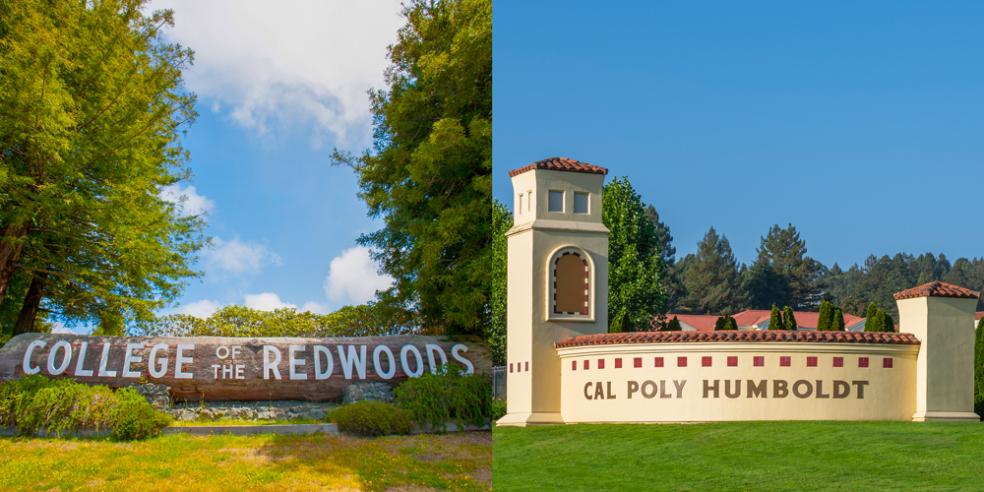
College of the Redwoods (CR) and Cal Poly Humboldt signed a memorandum of understanding this week. The MOU paves the way for students with an Associate of Science degree in Police Science at CR to make a seamless transition to the Leadership Studies B.A. program at Humboldt.
“Our police academy and associate degree programs do an outstanding job preparing students to start their careers,” says College of the Redwoods President Keith Flamer. “This new pathway with Cal Poly Humboldt gives them the tools to keep moving forward. It’s another great example of two quality higher education institutions working together to better serve our community.”
“This partnership reflects our shared commitment to student success and access to meaningful, flexible educational opportunities. Together with College of the Redwoods, we are creating a clear, supported pathway that meets students where they are—and helps them move forward in service to their communities,” says Cal Poly Humboldt President Michael Spagna.
CR’s Police Science program includes complete basic law enforcement training, called the Commission on Peace Officer Standards and Training (POST) Basic Training Academy. Most units will be transferable and applied to Humboldt’s Leadership Studies B.A.
The pathway program comes as state lawmakers call for additional education requirements for officers.
The pathway program will foster continued development of critical thinking, written and oral communication, and quantitative analysis skills. Students are exposed to multiple perspectives, creating space for meaningful debate and development of interpersonal and relational skills—all of which are vital to effective community policing that is grounded in community partnerships, proactive collaborative problem solving, and the overarching aim of improving quality of life for all members of the community.
“Building on the training and values of our academy, this pathway helps shape well-rounded leaders in law enforcement,” says Sgt. Corrie Watson, CR’s Basic Law Enforcement Academy coordinator. “By earning a four-year degree, our cadets become more adaptable and better prepared to meet the evolving challenges of public safety.”
“Higher education is a game changer for policing, equipping officers with vital skills, in-depth knowledge, and the flexibility to tackle new challenges,” says Greg Allen, Cal Poly Humboldt University Police Department chief. “As law enforcement faces a rapidly evolving landscape, having a well-educated team is key to boosting public safety, fostering strong community ties, and elevating the entire profession. Embracing education is a truly valuable investment in a brighter future for both law enforcement and the communities we serve.”
Tailored for working professionals across all fields, including law enforcement, Humboldt’s program is fully online, providing the flexibility to juggle courses with demanding careers.
The program develops knowledge and skills in key areas such as managing employees and stakeholders, using data and technology to inform and execute decisions, and communicating effectively.
A college degree often leads to promotion to higher ranks, such as sergeant, lieutenant, or chief. Earning a degree based on leadership skills gives officers a competitive advantage that can help advance their careers.